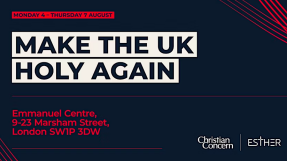Forty years on, abortion battle rages
Passionate debate over the ethics of aborting healthy babies preceded the Abortion Act that came into force in April 1968, and the issue is still hotly contested by the two sides.
"I used to - and still occasionally do - get lunatic letters comparing me to Herod and Hitler," David Steel, the parliamentarian who introduced the Act, told Reuters.
Forty years after Steel saw the Act become law, parliament is again besieged by activists - one group determined to stop what it sees as the barbaric murder of innocents, the other fiercely defending what it says is women's right to manage their own lives.
"The Abortion Act and its enactment was an historic advance for women," said Louise Hutchins, campaign director for the Abortion Rights group. "It ended the days of backstreet abortion with thousands of women being killed and many thousands more being injured and maimed for the rest of their lives.
"Not only that, it also allowed an incredible advancement in women's economic, social and educational position in society by giving them basic control over their lives."
Russia was the first country to legalise abortion in 1920, according to the World Health Organisation - although the law was repealed in 1936 and abortion remained illegal until 1955. Iceland was the first west European country to legalise abortion, in 1935.
TIME LIMIT
Many European countries allow abortion on demand up to 12 or 13 weeks into pregnancy, after which it is limited to cases where the baby or mother is at risk. It is legal up to 22-24 weeks of pregnancy in Spain, Switzerland and the Netherlands.
Britain's law originally allowed abortions up to 28 weeks after conception as long as two doctors agreed, but the upper limit was reduced to 24 weeks in 1990.
Pro-life campaigners, arguing that the upper limit should be reassessed, plan to table a series of amendments to a human fertilisation bill going through parliament next month, seeking a reduction to 20 weeks, 18 weeks, or even lower.
One of the strongest influences on the debate has been the release of groundbreaking three-dimensional moving images produced by Professor Stuart Campbell, an obstetrics specialist and a pioneer of ultrasound foetal diagnosis.
His video clips and photographs clearly show foetuses as young as 16 weeks sucking their thumbs, yawning and demonstrating behaviour which suggests they are far more developed at this stage than was previously thought.
"I was astonished at how complex the foetus is," Campbell told Reuters. "The pattern of behaviour of its arms and its hands shows that it is just learning spatial awareness and about its surroundings."
"Of course I don't believe that this is at a cerebral level - it is not an intelligent being at that time - but its reflex patterns of behaviour are preparing it for future life."
Steel says he found the pictures arresting, but says he, like the majority of the medical and scientific community in Britain, believes the 24-week time limit should be upheld.
As a young politician Steel witnessed an abortion, knowing he would face criticism if he did not. It was "not a pleasant procedure to contemplate", he says, but "I don't think seeing it carried out altered my views at all."
"BARBARIC" OR "INFLAMMATORY"?
Opinion polls show that around three-quarters of Britons support a woman's right to an abortion in the first three months of pregnancy, and those who support a 24-week limit include the British Medical Association, the Royal College of Nurses and the Royal College of Obstetricians and Gynaecologists.
As many as 200,000 women have abortions each year in Britain and the number is rising. Around 30 percent of British women will have had an abortion by the time they are 45 years old.
According to Campbell, as many as 2,300 of the 3,000 pregnancies terminated each year at between 20 and 24 weeks are normal babies likely to be born with no complications.
He says he believes strongly in a woman's right to safe and legal abortion but insists that 20 weeks - half-way through a normal pregnancy - allows enough time to make such a decision.
From then on "two thirds of them will be removed by gynaecological evacuation", he said. "The woman is anaesthetised, the cervix is dilated - which is dangerous in itself - and then the baby is absolutely dismembered, decapitated usually, as it is removed.
"These are beautiful creatures. They are rapidly developing all the skills necessary to survive. And at 20 weeks I think it's right to say we are not going to rip these babies out and dismember them. For a civilised society, I think it's extraordinary that we allow that. It's quite barbaric."
Pro-choice activists say such arguments are inflammatory and irresponsible. They say women who have abortions in later stages of a pregnancy are often in desperate circumstances, maybe having lost a partner through death or separation, or suffering from domestic violence or poverty.
"For people to use that kind of language and judge women when they are making often very difficult decisions is unhelpful," said Hutchins.
"It's inflammatory and it doesn't help women come to a considered decision about their pregnancy and the entire rest of their lives. To bring a child into the world - with all the responsibility that that carries - is a decision that only the woman is in the best position to take."













